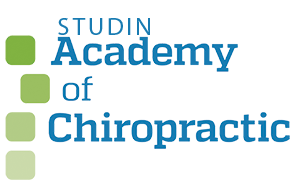How to Get Referrals from Lawyers, MDs, Hospitals and Urgent Care Centers.
Click here to download the transcript.
Disclaimer: The following is an actual transcript. We do our best to make sure the transcript is as accurate as possible, however, it may contain spelling or grammatical errors. We suggest you watch the video while reading the transcript.
Hi, I’m Dr. Mark student and welcome to the world of the academy of chiropractic, where our goal is to build the chiropractic profession through your clinical excellence. Today, we’re going to discuss how to get referrals from the medical community and folks. It’s really not hard. There’s a couple of things you have to remember. Number one, those who control the referrals control the game. That’s actually rule number two, rule. Number one is the medical community wants to work with peers. They want to work with people who are smart, who are in an evidenced based model who understand what they do and articulate how to do that. And that comes by you building an infrastructure. You’ve gotta have an infrastructure for your career, not just your business, but your career. Where are you going? What CE courses are you taking? Are you taking programs? Uh, and, and I’m nothing against Kinesio taping, but I see people taking the same course year after year after year.
What’s your practice goals? Where are you building your credentials? And that’s the next step it’s infrastructure credentials. And the strategic business plan have had a work within the medical community. And that’s so important. Listen, I strongly urge you urge you to learn how to triage cases, not just, oh, they need to be adjusted. Well, remember, you’re a doctor and a doctor of chiropractic. I’ve worked with many, many medical specialists, many hospitals, urgent care centers, you name it. And the reason that they’re I’ve, I’ve been able to work with them where they wanna work with me or the people that I train is because we train them to be good doctors. Now, remember the word doctor and doctor of chiropractic is not exclusive. Those two words are mutually inclusive and medicine focuses tremendously on triaging. And, and we should also, and, and, and, and, and not just tri, but diagnosing and creating an accurate diagnosis, not just, okay.
Let’s get ’em adjusted. Oh, or, okay. Um, I’ll just treat, maybe I’ll figure out what’s going on. I had one doctor in Texas who walked into eight years in practice who walked into an orthopedic surgeon’s office and the ortho wanted to give him five minutes of his time. That’s it? The author wanted his referrals. Basically. He wanted the car to kiss his ring. Well, they spent 45 minutes talking 45 minutes. You know what they discussed slice sequence acquisition on MRI. How thick of the slices in the cervical spine, lumbar spine? What are the angles? Are you doing, uh, a stir you a T1, a T2. That’s all they talked about. The ortho at the end of the meeting said, you know, I love chiropractic. I just haven’t found one smart enough who understands how to diagnose a patient properly. I like you. He walked out of that office with eight immediate
Referrals. In that year. He got over 200 referrals from that one orthopedist. I’m now working with one of the largest hospitals in, in the New York metropolitan area, uh, and actually in the New York suburbs. And, um, they want, they want me, I, I don’t practice. So I sent two other doctors in, but they want us based upon our credentials because we’ve taken courses in stroke analysis, MRI, spine, spinal biomechanics, electric diagnostics. Our courses are co credentialed. That’s the strategy folks through medical academia, as well as chiropractic academia. And you positioned yourself. And we positioned ourselves. We first got in through the COO chief operating officer and chief medical officer, but what sold the, the program was the chief medical officer and the, the chairman of the emergency department. They want to work with us because they realize there’s tremendous deficiencies in musculoskeletal care in the hospital systems.
It’s not a hard thing to do. So whether you’re dealing with individual medical providers, whether you’re dealing with institutions like hospitals, they want credentialed doctors. They just don’t want a chiropractor because a chiropractor with no additional credentials and I’m not denigrating chiropractic. It’s wonderful. I love it. But a chiropractic with no additional credentials is like going to a, a GP medical doctor with no additional training and expect them to do open heart surgery. They’re not qualified to do that. And you need a strategy, a strategy, and that’s what the academy of chiropractic does. We help build strategies and tell you what you need to do and give you the blueprint to get there. It works with lawyers. It works with medical specialists, medical primaries, urgent cares patients. That’s what we’re about. Folks. If you want to talk about this, give me a jingle. My phone number is (631) 786-4253. That’s 6 3 1 7 8 6 4 2 5 3. Thank you. And have a great day.

